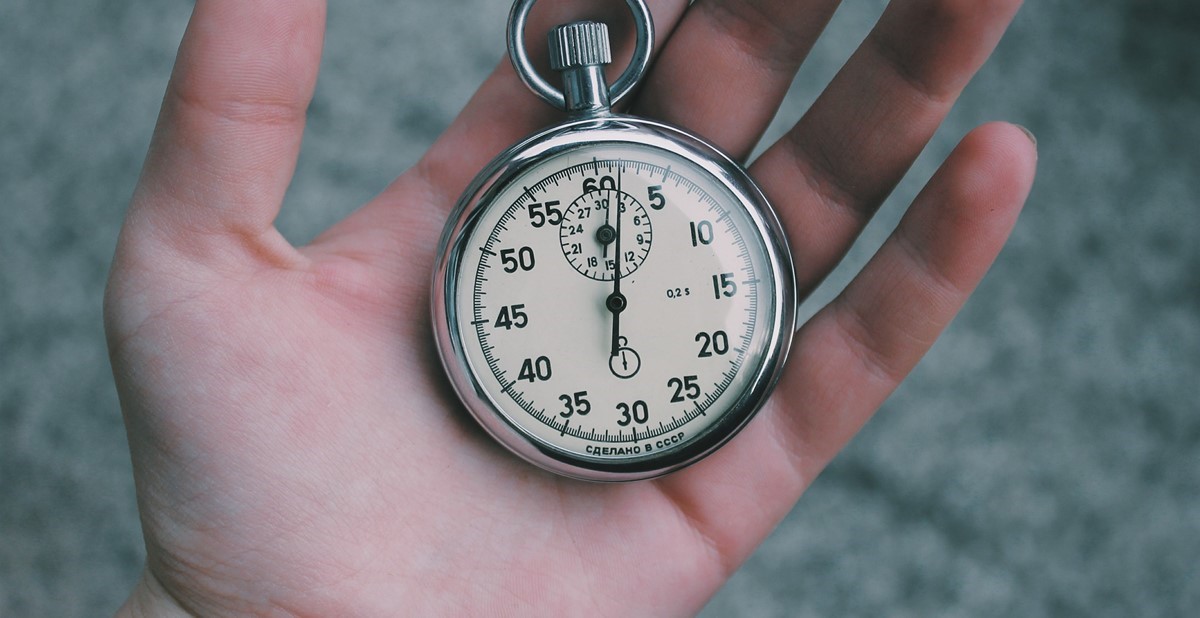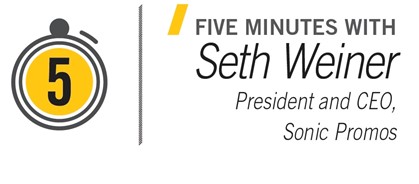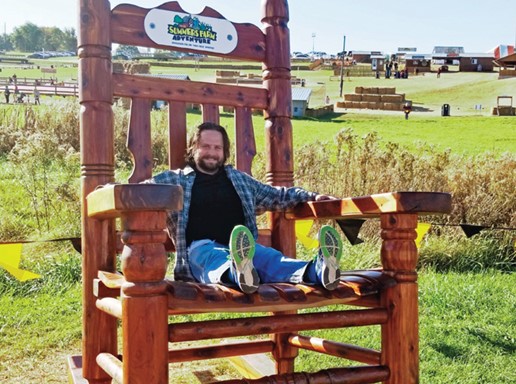Five Minutes With: Seth Weiner Of Sonic Promos


Seth Weiner, MAS, president and CEO of distributor Sonic Promos in Gaithersburg, Maryland, saw the mounting importance of diversity, equity and inclusion as it relates to the workplace. He also realized the impact that related practices and strategies will have on the future of the promotional products industry. As a result, Weiner and his team started educating themselves on the topic—such as training in unconscious bias—and formulated a new plan. He shares with PPB more about Sonic Promo’s recent developments.
PPB What are some of the strategies that Sonic Promos is using to develop a more diverse, equitable and inclusive workplace?
Weiner Our clients have been the main factor in ensuring that we have a strong DEI workplace. Next, we have built a team that is focused on valuing people, ideas and thoughts. In May, there was a vocalized call by our team to implement an action plan that we could follow to improve where we currently were. This included everything from how and where we source talent, setting forth social justice initiatives for the company as a whole, supporting team members in their own social justice initiatives, as well as investing in and diversifying our supply chain with minority-owned and socially responsible companies.
 PPB What are some of the ways that Sonic Promos has been educating its team in this effort, and how it relates to the workplace?
PPB What are some of the ways that Sonic Promos has been educating its team in this effort, and how it relates to the workplace?
Weiner Just like a promotional item is not the only piece of a successful marketing campaign, the same can be said about DEI training and education. It is one part of the process. You cannot participate in three 30-minute sessions and think that you are now diverse and inclusive. At Sonic, we initially made training and education an available resource. This is a challenging and sensitive topic. To make change, it requires a person to look inward, something that not everyone is comfortable with, especially if told to do so. Education comes in many forms, and that is the best approach. Training, volunteering, listening to speakers. A collaborative approach will resonate with the most people.
PPB How has Sonic Promos expanded its internship program?
Weiner Sonic has had an internship program for many years. We give interns a variety of opportunities to try out the elements of operating a business. Some of our best clients have started as interns. I have spoken before about “entry points” when it comes to how people get into the promo world. Most people do not say they want to sell shirts and mugs when they grow up. Most people are born in, married in or fall in [this industry]. To increase DEI in our industry, we need to create the entry points where they normally have not been. To do this, I began connecting with all the Historically Black Colleges and Universities (HBCUs) in the U.S. (There are about 100.) It is a hard and challenging time to hire right now. By doing the work now to make the connections, we will be ready when it is time to offer opportunities.
PPB What do you suggest to other distributors who are looking to open the conversation about diversity, equity and inclusion, but aren’t sure where to get started?
Weiner Just start. It will be a slow start. You will get some things wrong. You will then get things less wrong. Our industry is interesting in that there are so many companies with one, two or a few people. How can one person create a DEI workplace? How can 100?
My advice has been to do an audit of yourself. See where you are. What is the make-up of your company? Who are your clients? Who are your suppliers? Do you volunteer? Do your employees? Do you support these efforts? From there, you will find that you are probably already doing a few things. Now do more.
Are you writing a manifesto? No. Just keep track of your key ideas. What is important? How are you going to see that those key ideas are followed through on and carried on in your general dealings?
PPB In your experience, has there been a specific area of diversity, equity and inclusion that many people have found confusing, challenging or intimidating? And do you have a suggestion on how they can move past it?
Weiner I think that most people are afraid of saying or doing the wrong thing, so it is easier to do or say nothing. That time is over. I have found that there is some confusion over equality and equity. That would take its own article. There is a difference. My key points are: inclusion is a process, not an action and ignorance can be an answer but it cannot be an excuse. If you are afraid to start the discussion, call me and I will. It is a standing offer.
–––––––––––––––––––––––––––––––––––––––––––––––––––––––––––
Danielle Renda is associate editor of PPB.

